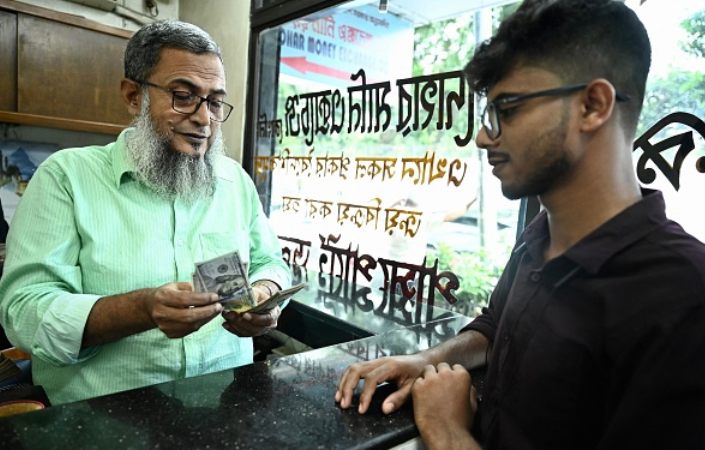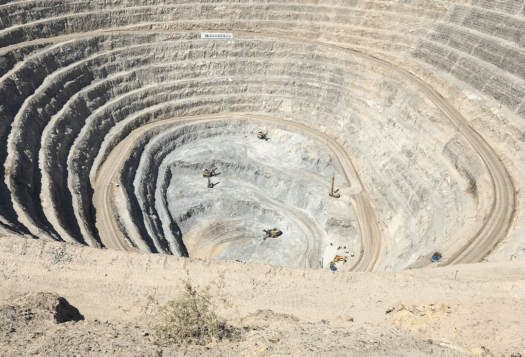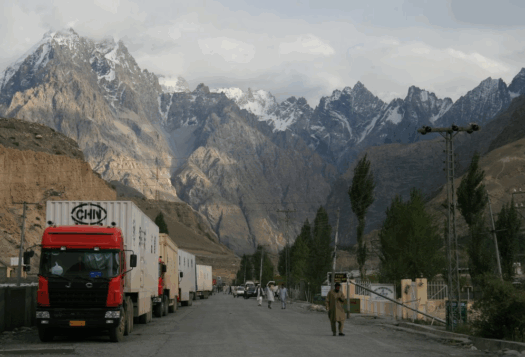
Rumors that Dhaka was seeking a $4.5 billion loan from International Monetary Fund (IMF) first surfaced in June 2022. The government of Bangladesh, under the control of the Awami League, initially dismissed the news. At the same time, the opposition claimed that the IMF would not issue a loan to a corrupt government. The government then withdrew fuel subsidies, leading to a rise in energy prices of almost 50 percent. Amid controversy, the IMF officially sanctioned a loan to Bangladesh on January 30, which the government portrayed as a victory for the ruling party’s economic management. This course of events speaks to the ongoing political salience and impact of Bangladesh’s recent economic woes.
Why Bangladesh Needed an IMF Loan
Since the turn of the millennium, Bangladesh has shown consistent economic growth. From 2000 to 2021, purchasing power parity adjusted for GDP per capita rose from $2,267 to $5,911, accompanied by significant reductions in poverty. Such achievements, along with progress in human capital accumulation and reduction in economic and environmental vulnerability, mean Bangladesh will graduate from the “Least Developed Countries” category in 2026. While the country grappled with multiple problems, including rising inequality, human rights concerns, and climate vulnerability, Bangladesh’s development story is largely viewed as a success.
While Dhaka struggled to decide how to use its excess reserves prior to the pandemic, in the 15 months leading up to the IMF’s approval of a loan in January 2023, Bangladesh lost 33 percent of its reserves.
Two successive shocks rocked Bangladesh: the COVID-19 pandemic and the impact of war in Ukraine. COVID-19 slowed economic momentum, even though Bangladesh suffered less severe peaks in infection and deaths than other countries. Depressed demand in 2020 and high remittance inflows significantly increased foreign exchange reserves. In August 2021, the reserves reached $48 billion or equivalent to 7.5 months of the import bill, more than double the three months recommended by the IMF. Government projections indicated that the reserves would continue growing, and economists debated how to best utilize the excess reserve.
The government, however, failed to consider that pent-up demand during the pandemic would lead to an import boom. More importantly, Dhaka did not foresee Russia’s invasion of Ukraine and the resulting rise in energy prices and disruption to global value chains. Bangladesh depends heavily on imports, especially in energy and food grains. By the time the government took measures to stop bleeding its foreign reserves to meet excessive import bills, its current account deficit had jumped from a meager $4.6 billion in FY21 to $18.7 billion in FY22. In FY21, the central bank bought almost $8 billion from the market, but since the start of FY22, it had to sell $18 billion from its foreign reserves to stop the local currency’s free-fall in value.
An illustrative example of Bangladesh’s struggles is the price of Liquified Natural Gas (LNG). Bangladesh adopted an imported LNG-based energy policy, betting LNG prices would remain low. Before the pandemic, one MMBtu LNG was priced at around six to eight dollars. In May 2020, this dropped to two dollars before a stunning rebound to reach $54 in August 2022. In July 2022, Bangladesh decided it could not afford a bidding war with European countries. It stopped purchasing LNG, ushering in the return of electricity load-shedding, which had been only an unpleasant memory for the Bangladeshi people in recent years. The government struggled to provide electricity to industrial zones and factories, which were forced to refuse export orders or use diesel-based, cost-inefficient electricity generated on-site. Around the same time, banks stopped issuing Letters of Credit to importers, citing a dollar crunch amidst stagnating exports and remittance earnings.
Bangladesh, in short, found its economic situation completely reversed. While Dhaka struggled to decide how to use its excess reserves prior to the pandemic, in the 15 months leading up to the IMF’s approval of a loan in January 2023, Bangladesh lost 33 percent of its reserves. Such a rapid loss indicates an impending balance of payments crisis.
Politicizing the IMF Loan
The Awami League has been in power in Bangladesh for 14 years and decisively won the last two elections. Both elections were allegedly rigged, with party goons working with law enforcement agencies to staff ballot boxes and intimidate voters. Amnesty International reports a governmental crackdown on freedom of expression, torture, and extrajudicial killings. Bangladesh’s major opposition parties have found themselves in a desperate position. Not only have they lost the last three elections, but they must also grapple with the government’s aggressive suppression tactics. The opposition parties consequently have looked towards the international community for support.
This appeal came to fruition when in December 2021, the United States sanctioned the Rapid Action Battalion, an elite policing and counterterrorism force, for human rights violations. Opposition parties believed international pressure would continue until the government answered these allegations, expecting that development partners and multilateral institutions would provide the tarnished Awami League little support. A prominent opposition politician and former IMF staff member pointed out that endemic corruption, unreliable macroeconomic statistics, and a shoddy banking sector make Bangladesh an unviable candidate for support from the IMF. There was also surprise and derision that the country was applying for a ‘bail-out’ while the government claimed unprecedented growth and development.

Bangladesh’s growth narrative has been questioned by opposition politicians and eminent economists. The growth statistics are incoherent and likely inflated to meet political goals. The government has neglected severe structural issues, particularly the banking sector, for many years. The sector is reeling from a massive number of non-performing loans. A 2018 report showed that more than 13 percent of all outstanding loans are owed by bank owners themselves. In 2015, non-performing loans were restructured for business people with ties to the ruling party, allowing them to borrow more funds before clearing their past dues. A visiting IMF mission specifically asked the government to tackle the issue of non-performing loans and restructuring before issuing the loan. The IMF mission also suggested changes to how Dhaka calculates its GDP.
For the opposition, though, the suggestion of changes is not enough. Opposition parties expected the IMF to refuse to issue a loan and instead send a strong message that the international community would not tolerate rights violations and election rigging. In response, the government accused the opposition of putting their own interests before those of the country and claimed the IMF loan was not a bail-out but a pre-emptive measure. In fact, the government argues that the loan’s approval vindicated the government’s position. Citizens also seem to have taken the IMF’s approval as a sign of economic rigor, affirming the government’s messaging.
The opposition’s expectation that the IMF would act as a political watchman was off base. Rather than pursuing a strategy based on the IMF’s supposed loan denial, the opposition would have been better served by raising questions about how the economy has come to the point of seeking loans from the IMF, longstanding economic malpractice, and how repaying the external debt will be difficult without significant management changes.
It is the People Who Lose Out
On August 5, 2022, the government of Bangladesh raised fuel prices by over 40 percent. This surprised analysts for two reasons. First, inflation had already risen, and the price jump pushed it even higher. Second, since 2015, the government has brought in around $4.6 billion in profits from fuel sales. Bangladeshi citizens were already struggling from price pressures and expected some of that money to be diverted to fuel subsidies. The government, meanwhile, only increased electricity and gas prices in the subsequent months. The IMF welcomed these moves and hinted at further price rises, suggesting the subsidy reductions were linked to the loan. On April 11, the government reduced the fertilizer subsidy even though it promised not to do so. After not doing so for eleven years, this is the second price increase since August.
Bangladesh’s long-term growth and development prospects hinge on how the government manages myriad economic challenges.
IMF loans are almost always unpopular. Loan conditions increase austerity measures, like Bangladesh’s fuel and energy price increase. Because IMF loans are necessary only during economic trouble, the institution is associated with difficult times for many citizens. There are many plausible reasons why Bangladesh is seeking an IMF loan. It could be the best way to navigate the price shocks resulting from the war in Ukraine, as the government says. It could be economic mismanagement, as the opposition claims. Alternatively, the answer could lie somewhere in the middle.
Whatever the case, the brunt of economic pain will be borne by ordinary people. Bangladesh’s long-term growth and development prospects hinge on how the government manages myriad economic challenges. Whatever the outcome, it is safe to assume that the people of Bangladesh will not remember the IMF fondly.
Also Read: Bangladesh in 2022: A Year of Reckoning
***
Image 1: Syed Mahamudur Rahman/NurPhoto via Getty Images
Image 2: Munir Uz Zaman/AFP via Getty Images


